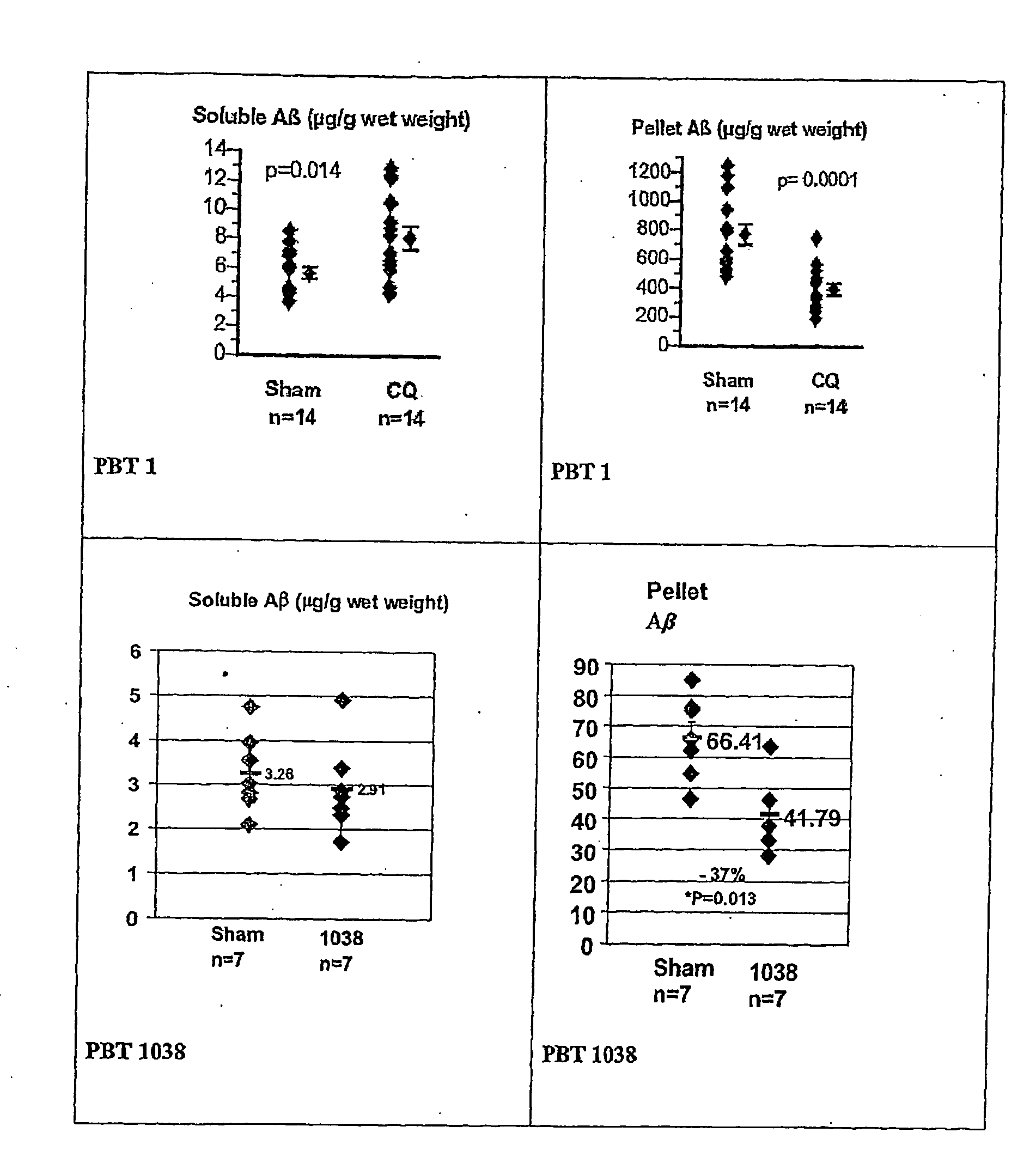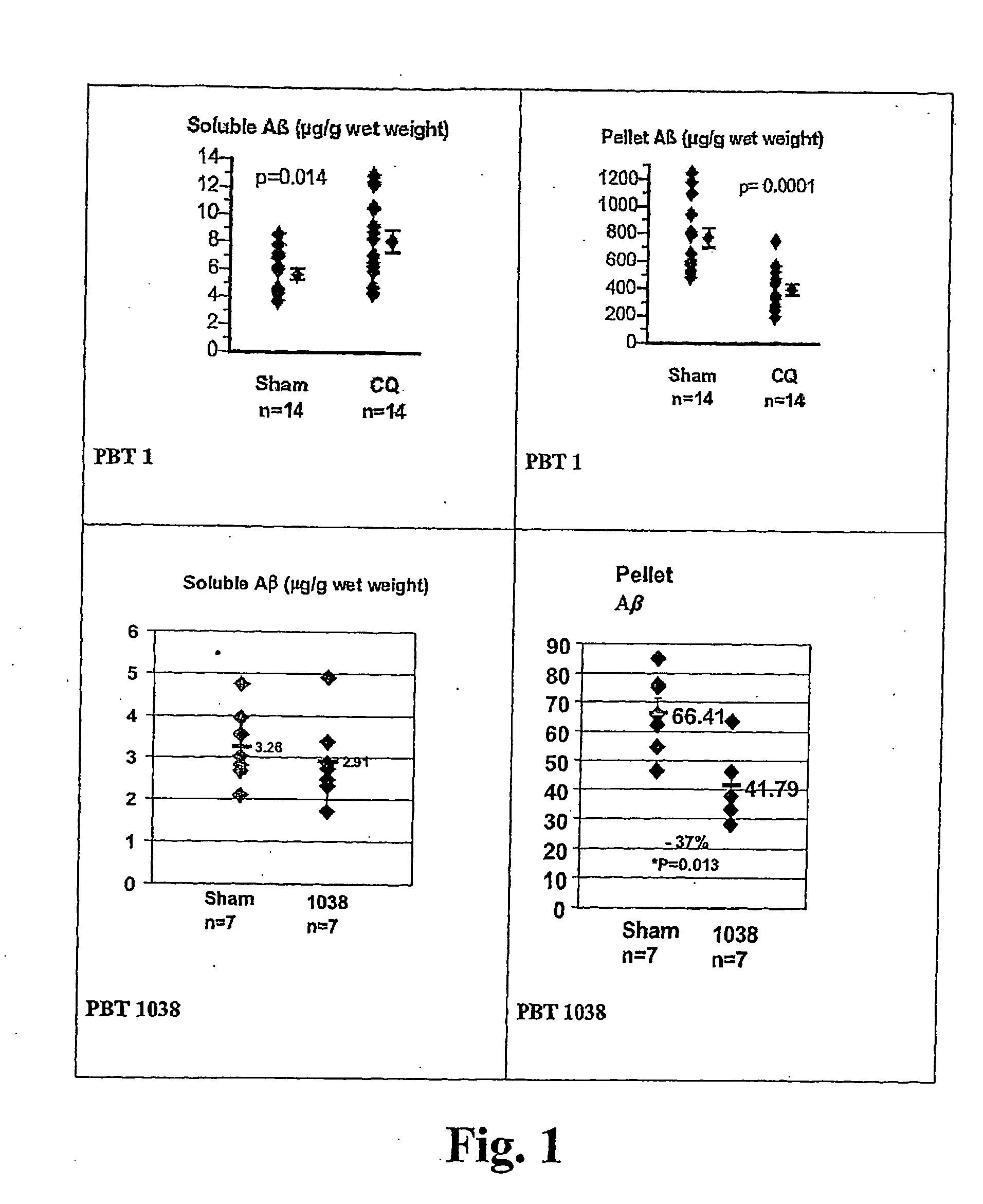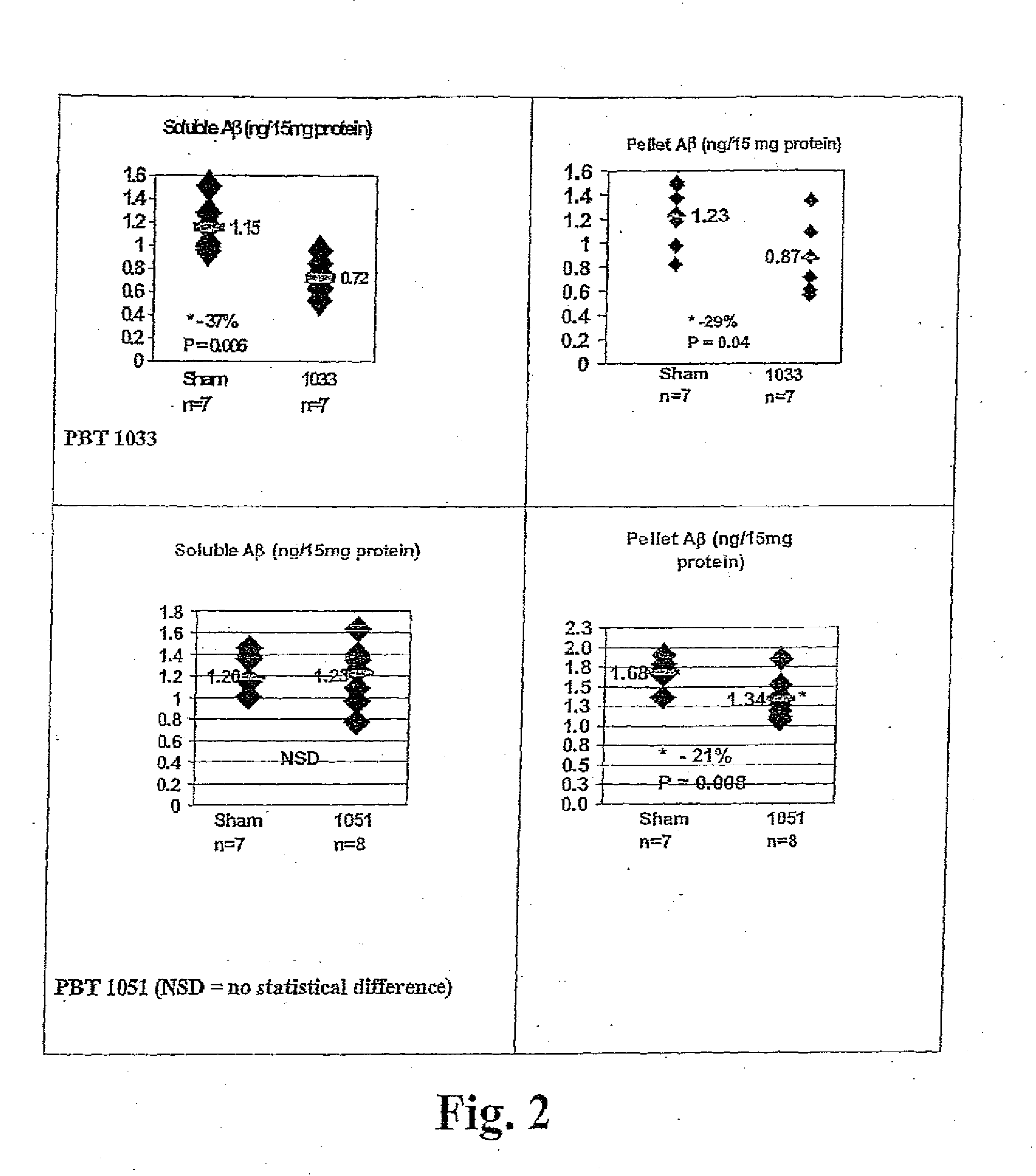8-Hydroxy quinoline derivatives
a technology of quinoline derivatives and quinoline, which is applied in the field of 8hydroxy quinoline derivatives, can solve the problems of significant adverse effects, no drugs or agents which target this pathway have been shown to have a lasting effect on modifying
- Summary
- Abstract
- Description
- Claims
- Application Information
AI Technical Summary
Benefits of technology
Problems solved by technology
Method used
Image
Examples
example 1
Preparation of 8-hydroxy-quinoline-2-carboxylic acid amides (Scheme 1)
[0302]
Procedure A:
[0303]1,3-Dicyclohexylcarbodiimide (182 mg, 0.87 mmol) was added to a stirred solution of 1-hydroxybenzotriazole hydrate (119 mg, 0.87 mmol) and 8-hydroxy-quinoline-2-carboxylic acid 1 (150 mg, 0.87 mmol) in DMF and dichloromethane (1:1, 10 mL). After 30 min, histamine (182 mg, 0.87 mmol) was added and the mixture stirred at RT for a further 16 h. The volatiles were then removed in vacuo and the remaining residue gave, after purification by column chromatography on silica (ethyl acetate / 1-PrOH / 2 N NH4OH, 6:2:1), 8-hydroxy-quinoline-2-carboxylic acid[2-(1H-imidazol-4-yl)-ethyl]-amide A1 as a cream-colored solid.
[0304]The above reaction was repeated using amines with 1 or 4,8-dihydroxy-quinoline-2-carboxylic acid: histamine gave B1; 2-(2-aminoethyl)pyridine gave A2, 2-(aminomethyl)pyridine gave A5 / B2,2-aminothiazole gave A3,5-methyl-2-aminothiazole gave A4,2-aminophenol gave A6,1,2-diaminoethane ga...
example 2
Preparation of 2-Acetyl-8-hydroxy-quinoline C1 (Scheme 2)
[0306]
[0307]Methylmagnesium bromide (1.2 mL of a 3 M solution in diethyl ether, 3.5 mmol) was added dropwise into a stirred solution of 8-hydroxyquinoline-2-carbonitrile 2 (100 mg, 0.588 mmol) in diethyl ether (10 mL) at −15° C. The resulting solution was allowed to warm to RT over 2 h and stirred at RT for a further 4 h. The reaction mixture was then quenched with saturated NH4Cl and extracted with ethyl acetate (10 mL×3). The extracts were combined, dried (Na2SO4) and concentrated to afford the title compound as a pale orange solid (108 mg, 98%) C1. Spectral data of this compound are given in Table 1.
example 3
Preparation of 8-Hydroxy-quinoline-2-carboxaldehyde Oxime D1 (Scheme 3)
[0308]
[0309]A solution of 2-methyl-quinolin-8-ol (536 mg, 3.37 mmol) in dioxane (8 mL) was added dropwise over 3 h into a stirred mixture of SeO2 (665 mg, 5.99 mmol) in dioxane (25 mL) at 50-55° C. The resulting mixture was then heated at 80° C. for 16 h, cooled, and the solids filtered off. The filtrate was concentrated and the residue purified by column chromatography on silica (dichloromethane / MeOH, 1:0-40:1). This afforded 8-hydroxy-quinoline-2-carboxaldehyde 4 as a straw-coloured solid (358 mg, 61%). 4: 1H NMR (CDCl3): δ 10.24 (s, 1H), 8.34 (d, J=8.6, 1H), 8.22 (br, 1H), 8.07 (d, J=8.6, 1H), 7.64 (dd, J=7.5 and 8.0, 1H), 7.44 (d, J=8.0, 1H), 7.30 (d, J=7.5, 1H). The mixture of 4 (100 mg, 0.578 mmol), NaOAc (63 mg, mmol), hydroxylamine hydrochloride (60 mg, 0.863 mmol) and water (5 mL) was heated at 100° C. for 15 min. The precipitate was isolated by filtration. This provided the title oxime (ID 969) D1 as an...
PUM
| Property | Measurement | Unit |
|---|---|---|
| time | aaaaa | aaaaa |
| time | aaaaa | aaaaa |
| temperature | aaaaa | aaaaa |
Abstract
Description
Claims
Application Information
 Login to View More
Login to View More - R&D
- Intellectual Property
- Life Sciences
- Materials
- Tech Scout
- Unparalleled Data Quality
- Higher Quality Content
- 60% Fewer Hallucinations
Browse by: Latest US Patents, China's latest patents, Technical Efficacy Thesaurus, Application Domain, Technology Topic, Popular Technical Reports.
© 2025 PatSnap. All rights reserved.Legal|Privacy policy|Modern Slavery Act Transparency Statement|Sitemap|About US| Contact US: help@patsnap.com



